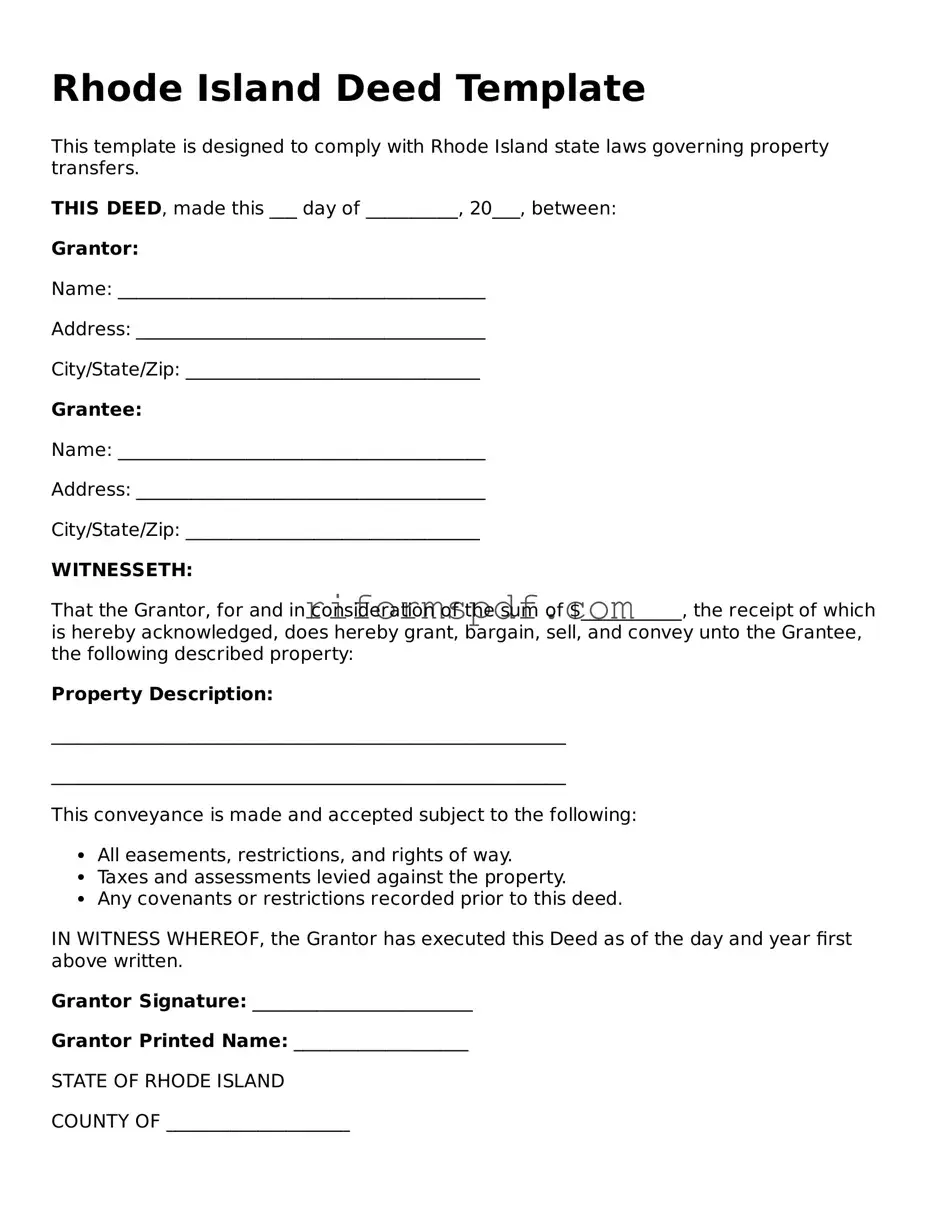Printable Deed Form for Rhode Island
A Rhode Island Deed form is a legal document that facilitates the transfer of property ownership from one party to another. This form serves as a crucial instrument in real estate transactions, ensuring that the rights and responsibilities associated with the property are clearly defined. Understanding the nuances of this deed is essential for anyone involved in buying or selling real estate in the state.
Launch Editor

Printable Deed Form for Rhode Island
Launch Editor
Finish the form now and be done
Edit Deed online and skip the paperwork.
Launch Editor
or
⇓ PDF Form
